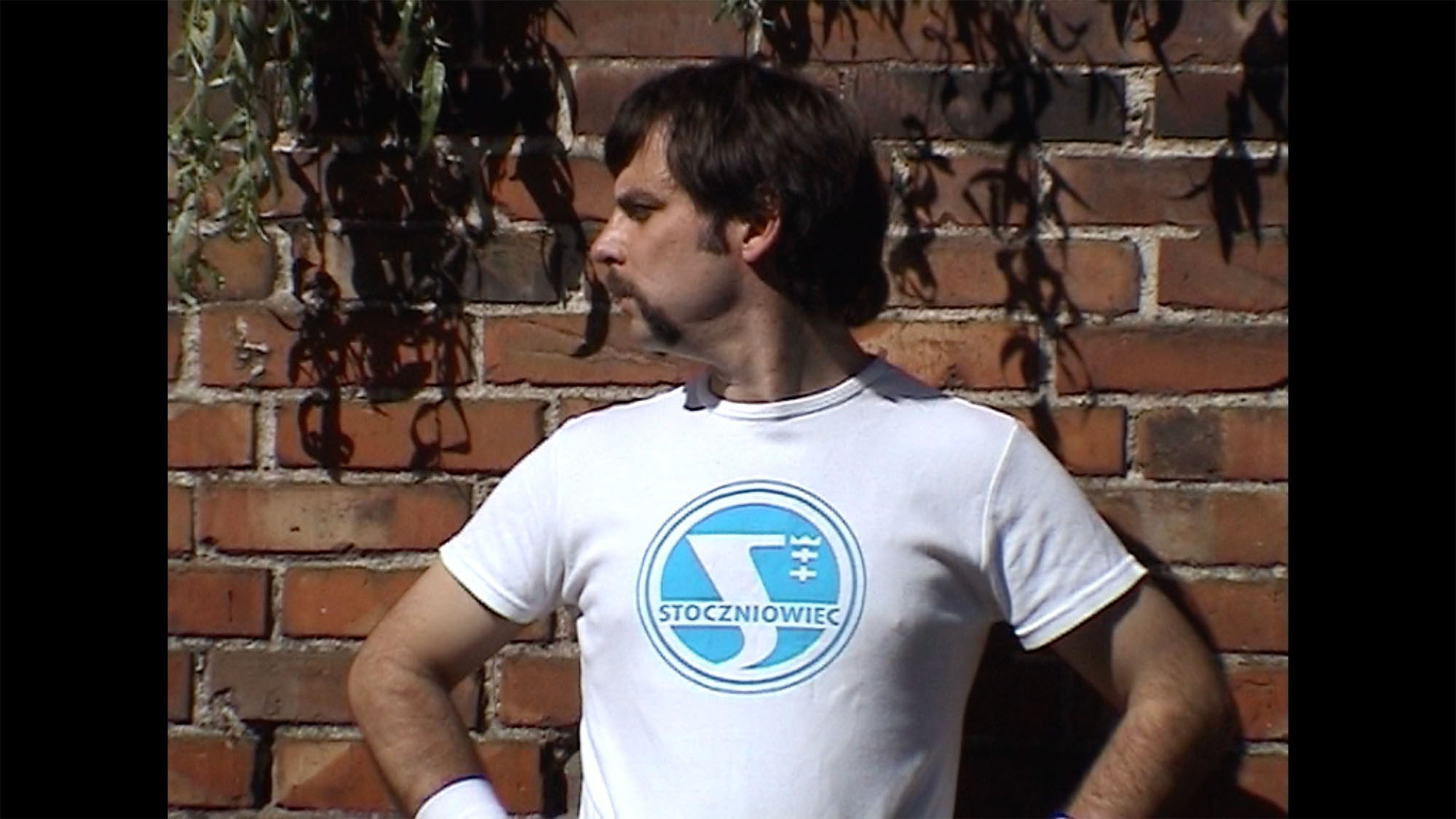Jacek Niegoda’s video is a kind of training manual for those willing to re-enact Lech Wałęsa’s famous 1980 jump over the wall of the Gdańsk Shipyard that became a symbol of the beginning of political changes in Eastern and Central Europe, culminating in the fall of the Berlin Wall.
Niegoda reflects on the recent history of Poland and Europe and in an intelligent and unexpected way redefines the iconic characters, phenomena, and symbols of the transformation era in Europe. The video’s easy and fun atmosphere, however, has a double meaning. Wałęsa, on whom the video’s protagonist is based, is the subject of debate and ambiguously positive evaluations of his contemporaries and often used to antagonize society. Therefore, the interpretation of the meaning of this work remains open to those taking part in disputes concerning Wałęsa’s life choices.





